xodul
Xodul is a tactical and strategy game invented by Sílvia M.G. Rodrigues, which is a variant of chess. This game is inspired on international chess, chinese chess (xiang-qi), and japanese chess (shogi).
In particular, xodul has 10 different pieces from each other: car, knight, bishop, queen, king, wizard, guard, lance, cannon and pawns. One of the particularities of this game is that the promotion of pawns can be made accordingly to a different rule: a piece captured by one of the players can return to the game by the promotion of one of the pawns; therefore, the pieces can change their colour.
Setup
The initial setup of the xodul game is as indicated in the following figure:
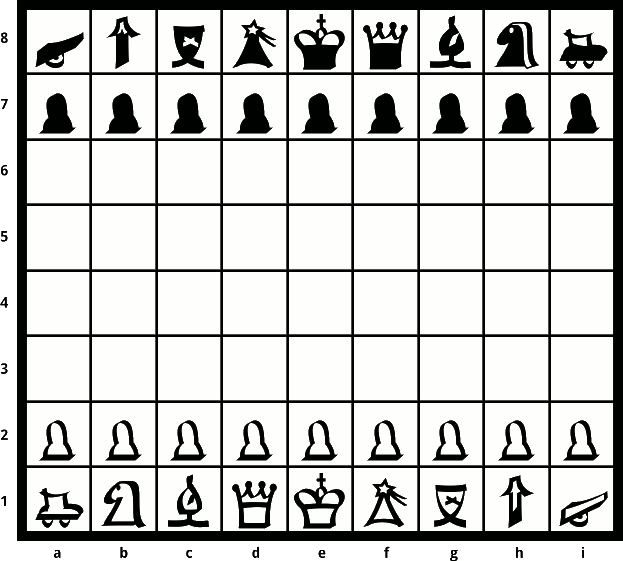
here, the bottom pieces from left to right are: the car, the knight, the bishop, the queen, the king, the wizard, the guard, the lance, and the cannon. The game is played in a board with 8x9 lines & columns.
Pieces
in the xodul:
- there are some pieces equal in name and movement to the international chess [the knight, the bishop, the queen and the king];
- there are two pieces equal in name and movement to those of chinese chess /xiang-qi [the car and the cannon; note that the movement of the car is equal to the movement of the rook piece of international chess];
- there are two pieces with repeated names of chinese /xiang-qi chess and japanese chess /shogi, but with original movements [the guard and the lance, respectively];
- there is a totally original piece [the wizard];
- and finally, there are the pawns, whose normal movement is the same as they have in international chess, but whose promotion in this game is made accordingly to original rules.
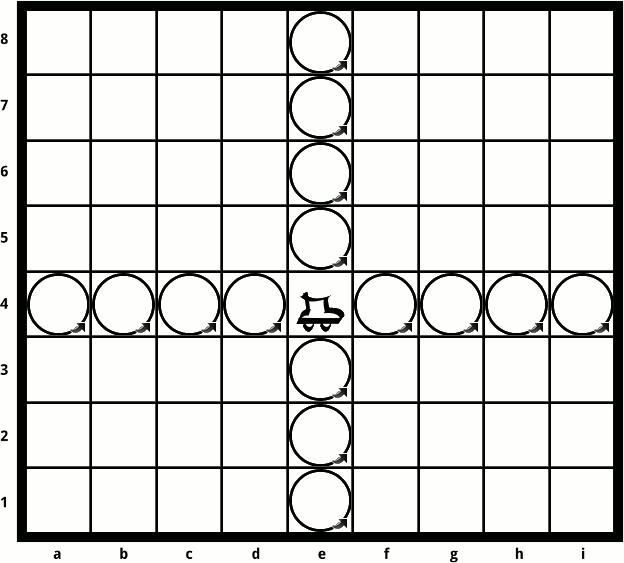
|
the car moves along lines or columns, the desired number of squares. |
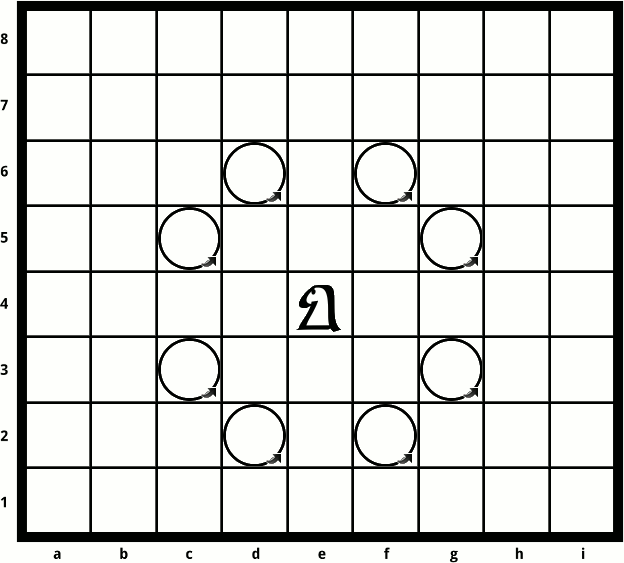
|
the knight moves in the form of the capital letter “Lâ€, jumping over the pieces with its movement if the player wants that. |
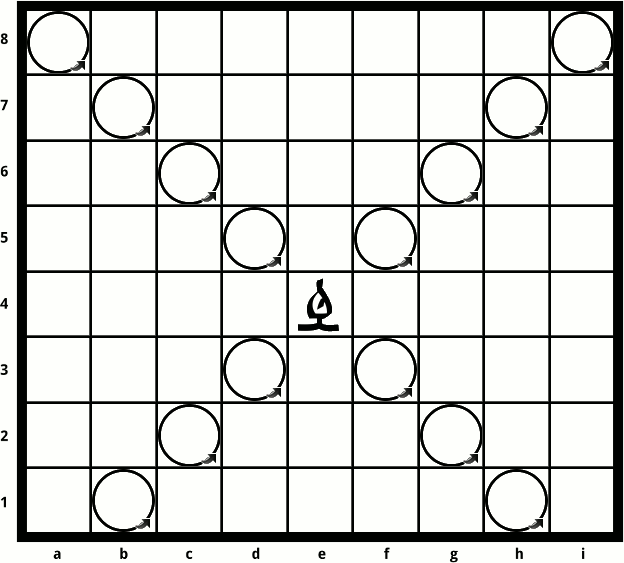
|
the bishop moves along diagonal directions, the desired number of squares. |

|
the queen moves along lines, columns or diagonals, any number of squares. |

|
the king moves one square in any direction. |

|
the wizard has two options:
|
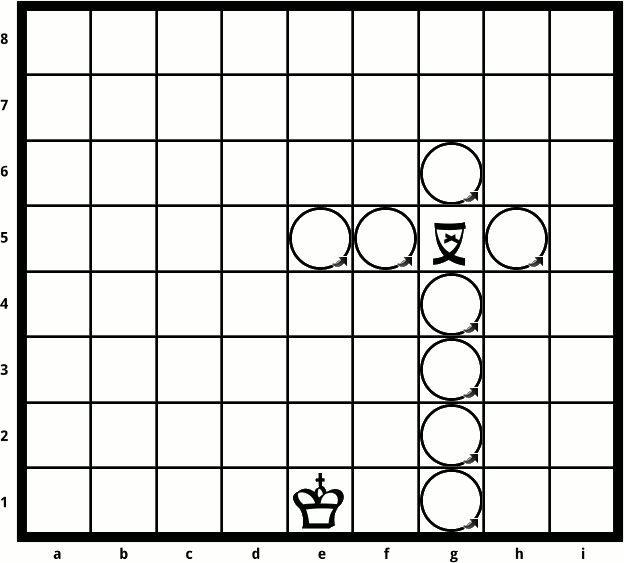
|
the guard has two options:
|
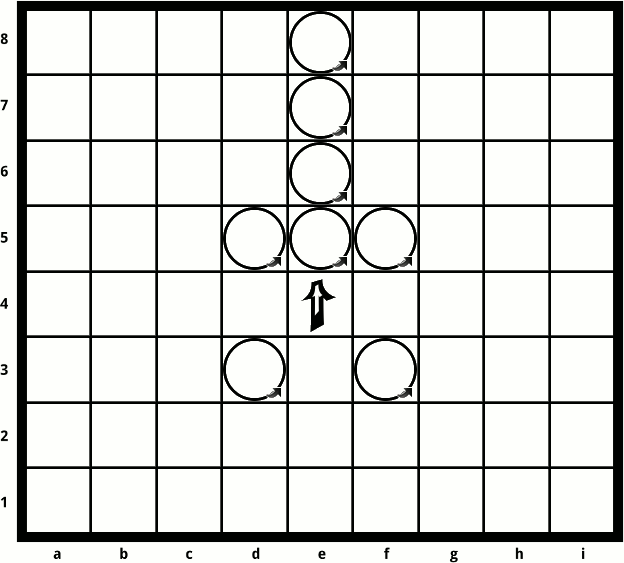
|
the lance has two types of movement:
|
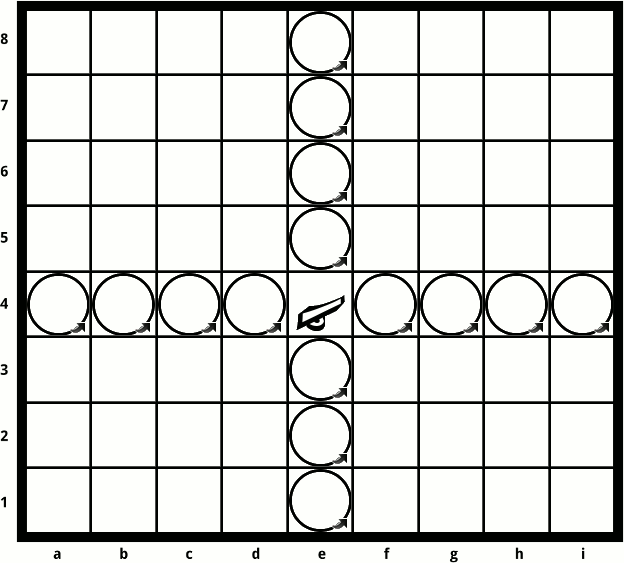
|
the cannon has a normal movement equal to the car's movement; however, when it is going to make a capture it must jump over one, and only one, other piece of any colour. |

|
the pawn's normal movement is to move one square to the front if that square is empty; in its first move, it has the option of moving two squares to the front; in another hand, its capture movement is to move one square in diagonal to the front. |
|
promotion of pawns: at any phase of the game, instead of doing a normal move, the player can promote any of its pawns by replacing it with a captured piece (during the game, that can be done the number of times the player wants, while having pawns); if a pawn reaches the last line it is converted into a "general", which can move one square to the front or one square in any diagonal. |
|
Rules
>> the rules of xodul follow the rules of international chess, except in the movement of the additional pieces, the promotion of pawns, and that there is neither castle nor en passant.
Notes
board's photos
2D
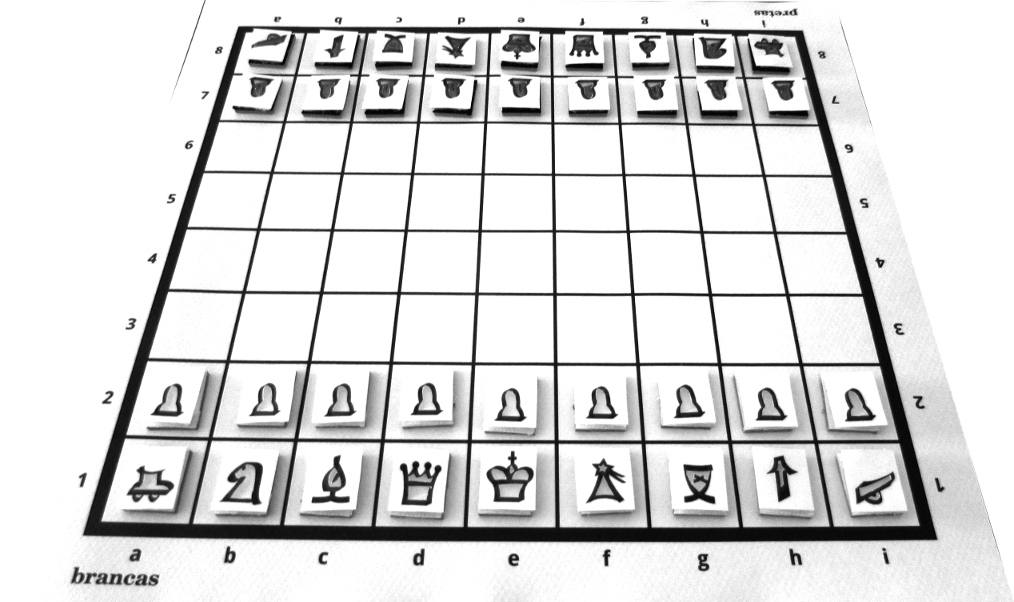
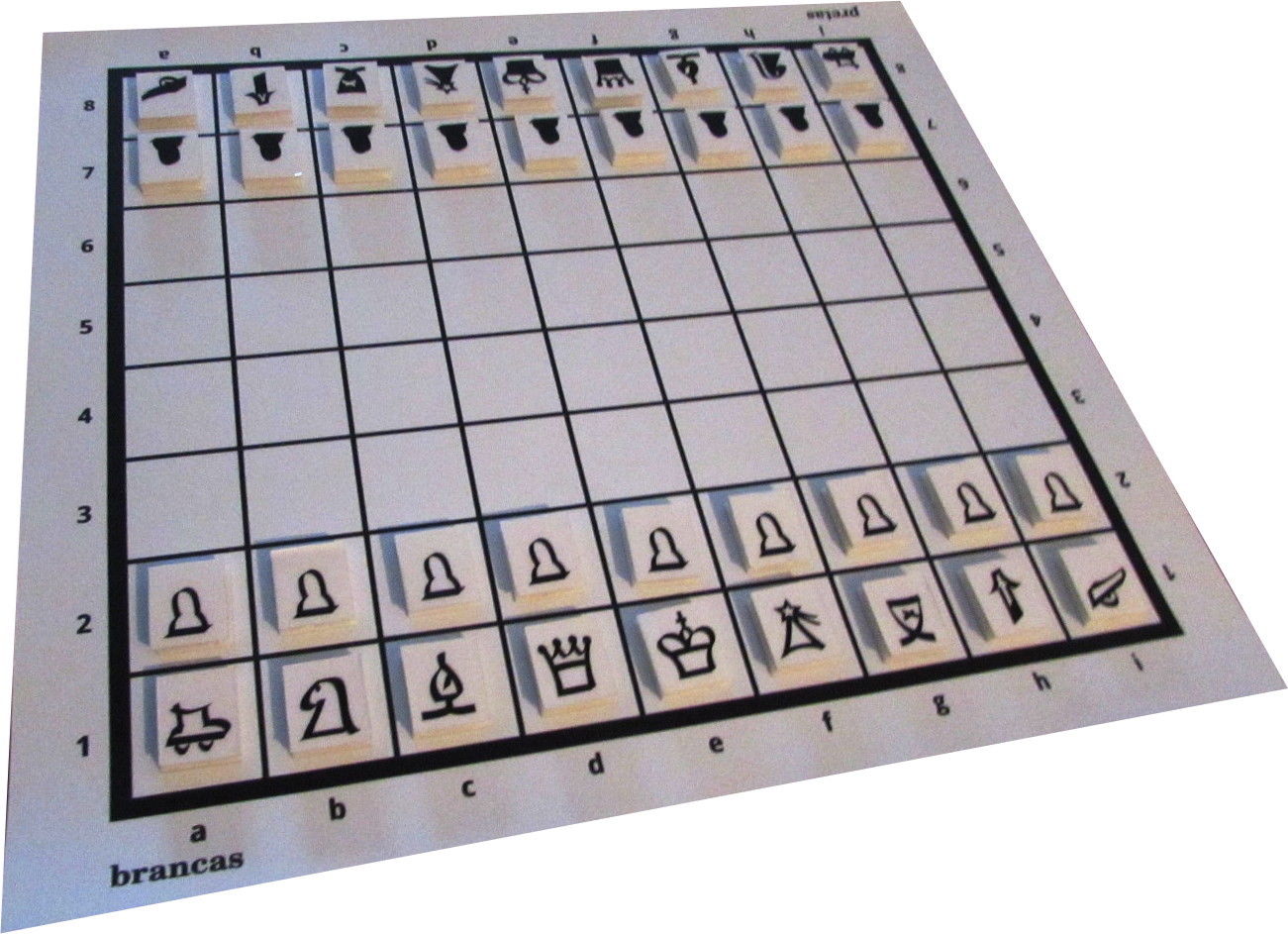

3D
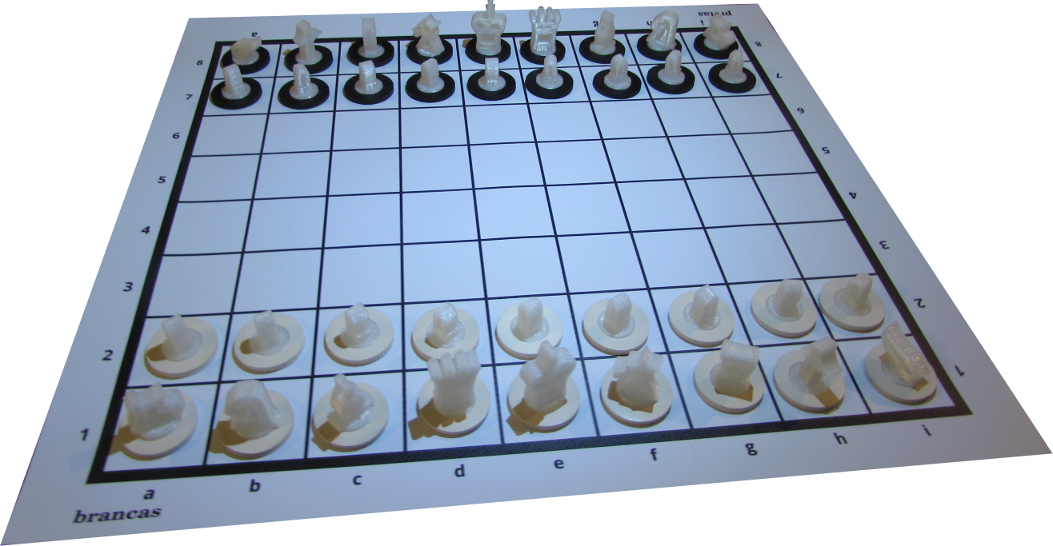
notes
The word "xodul" is the concatenation of "x", that is the 1st letter of the portuguese word "xadrez" (which means chess), with the inverse of the latin word "ludo" (which means game /to play); therefore we have "x"+"odul", i.e. the word "xodul", which has been coined by the game's creator.
This game has been developed since the academic year 2010/2011 until december 20th, 2017.
links
>> play xodul online at http://www.xodul.com.
 This 'user submitted' page is a collaboration between the posting user and the Chess Variant Pages. Registered contributors to the Chess Variant Pages have the ability to post their own works, subject to review and editing by the Chess Variant Pages Editorial Staff.
This 'user submitted' page is a collaboration between the posting user and the Chess Variant Pages. Registered contributors to the Chess Variant Pages have the ability to post their own works, subject to review and editing by the Chess Variant Pages Editorial Staff.
By Silvia M. G. Rodrigues.
Last revised by Silvia M. G. Rodrigues.
Web page created: 2018-05-21. Web page last updated: 2018-05-21